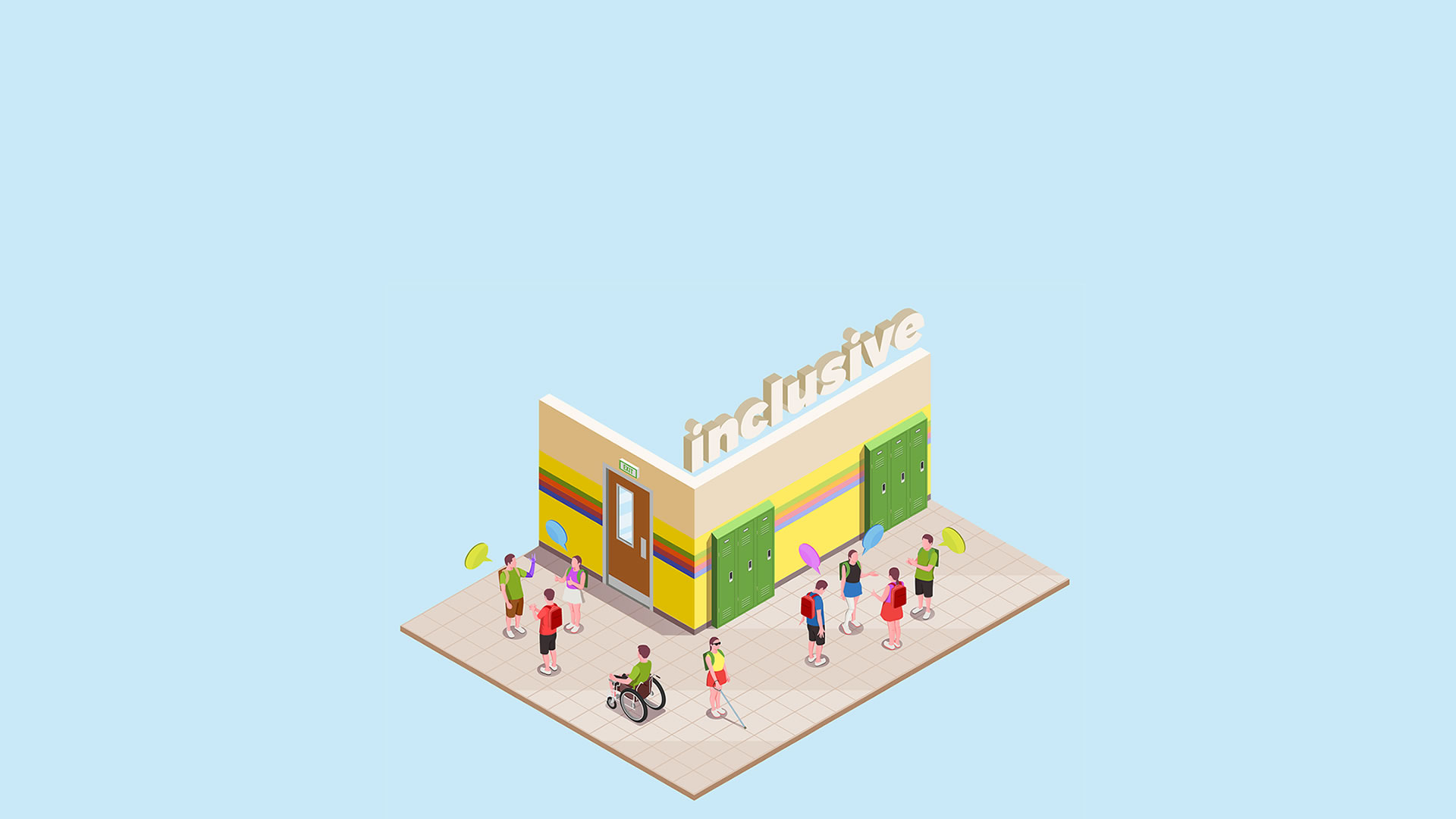Reasonable accommodation management and hardship policy
The hardship and reasonable accommodation policies have changed; we invite you to review what's new so that you can make use of these resources if your situation requires it.
Reasonable accommodation management and hardship policy
Center for Diversity - Dean of Students
The current dynamics of the pandemic, the determinations of the Ministry of Health and the Ministry of Education, and the number of people with a complete vaccination schedule both in our community and in Bogota allowed the University to resume face-to-face academic activities in January 2022. Under these new circumstances, it is no longer necessary to consider connectivity barriers or barriers due to physical or mental health, personal or family difficulties related to Covid-19, or the confinement situation to request a reasonable adjustment. Likewise, it is also expected that there will be a reduction in situations that may jeopardize the achievement of the student´s academic objectives. In this sense, it is expected that professors will implement the policy of difficult moments in very special cases and when none of the figures contemplated in the student regulations can be used. From 2022 onwards, reasonable adjustments and the policy of difficult moments will be resumed as follows:
REASONABLE ADJUSTMENTS
The concept of reasonable accommodation arises from the United Nations Convention on the Rights of Persons with Disabilities and is structured based on the social approach to understanding a disability. According to the United Nations (2014), this approach defines a disability as the consequence of the interaction of the individual with an environment that does not accommodatethe differences of that individual. From this perspective of the United Nations (2014) the environment and the attitudes that shape it arefactors that play a major role in the establishment of the circumstance called "disability".
The Convention defines reasonable accommodation as the necessary and appropriate modifications and adjustments not imposing a disproportionate or undue burden, where needed in a particular case, to ensure to persons with disabilities the enjoyment or exercise on an equal basis with others of all human rights and fundamental freedoms. (Convention on the Rights of Persons with Disabilities).
WHAT IS A REASONABLE ADJUSTMENT AT THE UNIVERSIDAD DE LOS ANDES?
Are all the actions, strategies, support, resources, and adaptations used to guarantee students with disabilities their participation, development, and learning in higher education, favoring the equalization of opportunities and guaranteeing their rights. Reasonable accommodations have the objective of eliminating possible visible or invisible barriers that impede the full enjoyment of the right to education. They are accommodations because they are adapted to the specific condition of each student, and reasonable because they do not impose a disproportionate or undue burden on the University.
WHO CAN REQUEST A REASONABLE ACCOMMODATION?
All students who have any physical, mental, intellectual, or sensory impairment in the medium or long term that, in their interaction with the university environment, or their interaction with its different actors (professors, administrators) are facing some barrier(s) that prevent them from participating in academic activities and university life on an equal footing with others. These barriers can be physical, they can be in the methodology or practices that your professor uses, they can be attitudes, or they can also be in the organization of the services that we offer at the university.
WHY DO STUDENTS WHO DO NOT HAVE A DISABILITY CONDITION SHOULD NOT REQUEST A REASONABLE ADJUSTMENT WHEN THEY HAVE ANY DIFFICULTY THAT PREVENTS THEM FROM COMPLYING WITH THEIR ACADEMIC COMMITMENTS?
The current dynamics of the pandemic, the determinations of the Ministry of Health, and the Ministry of Education, and the number of people with a complete vaccination schedule both in our community and in Bogota made it possible for the University to resume face-to-face academic activities in January of 2022. These new circumstances allow us to think that it is no longer necessary to contemplate connectivity barriers or barriers due to physical or mental health, personal or family difficulties related to Covid-19, or the confinement situation to request a reasonable accommodation.
WHAT ARE THE REASONABLE ADJUSTMENTS THAT STUDENTS CAN REQUEST?
The reasonable adjustments that students can request are all the actions that can effectively eliminate the barriers that are preventing their participation in any of the dimensions of university life. Some examples are: having additional time to submit evaluations, adjusting the evaluation format, using a different methodology to meet the course objectives, and requesting the support of a tutor to perform a specific task within a course. These are just a few examples, the important thing is that the adjustments should allow the barrier to be effectively removed.
HOW SHOULD THE STUDENT REQUEST A REASONABLE ADJUSTMENT?
"Make an appointment HERE. At the appointment you will discuss with a psychologist what barriers you perceive and ways to eliminate them.
After identifying these barriers, we will work to eliminate them, discussing them with the corresponding academic and administrative units. For example, we will speak with teachers and academic coordinators to make adjustments to your classes or evaluations.
Once the adjustments are in place, we will do permanent monitoring to ensure that you meet your objectives."
REFERENCES United Nations, 2014. Convention on the Rights of Persons with Disabilities, Training Guide Professional Training Series No. 19. United Nations, Convention on the Rights of Persons with Disabilities.
Créditos
 |
Foto de tomada de www.freepik.es |
| Autor: Centro de Diversidad Traducción: Laura Victoria Villamil |
